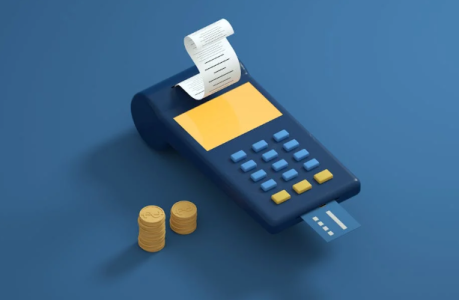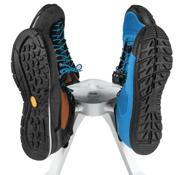Australians are pushing back on tipping—where do you stand?
By
Maan
- Replies 0
Tipping can be a tricky topic—especially when it starts creeping into places you wouldn’t expect.
A growing trend in how Australians pay at hospitality venues is sparking debate and discomfort among diners.
New research has revealed some surprising generational divides and strong opinions about whether this practice has any place in Aussie culture.
Tipping has always been a polarising subject in Australia, but the growing presence of digital payment systems has reignited the debate—especially among older generations.
Gone are the days when you could discreetly slip a note or some coins into a tips jar or leave something extra on the table.
With cash slowly disappearing and tap-and-go options becoming the norm, diners are increasingly faced with a card machine prompt asking whether they want to tip 5, 10, 15 or even 20 per cent—sometimes before they've even taken a bite or sip.
In some venues, the tipping prompt appeared the moment patrons ordered through a QR code, before any service had been provided.
Finance expert Sean Callery believed this shift had left many customers frustrated.
‘When you've not yet had the opportunity to gauge whether the service, the quality of the food, and all the things you would typically associate with for whether you would tip or not, it's slightly presumptuous that you would do so, so early in your experience at a hospitality venue,’ he said.
Callery also warned that pushing too hard for tips could have long-term consequences for hospitality venues: ‘It's just worth remembering that it is an optional thing, and if you feel like there's not a justification for adding a tip, you just have to stick to your guns.’
New findings painted a clearer picture of how Australians really felt. The research revealed that 43 per cent of respondents refused to tip outright, insisting it simply wasn’t part of Australian culture. Another 18 per cent admitted they felt uncomfortable when prompted to tip and sometimes gave in to the pressure.
Meanwhile, 29 per cent said tipping depended on the occasion, 7 per cent enjoyed tipping to reward good service, and just 4 per cent believed it was essential because staff deserved the extra pay.
Interestingly, Millennials—despite their lower average monthly spending—were the most generous tippers, with 15 per cent saying they always left something extra. Baby Boomers, on the other hand, were the most resistant, with 50 per cent saying they never tipped at all.
Callery suggested this generational gap might be linked to experience: younger Aussies were more likely to have worked in hospitality and remembered how much a tip could mean.
The growing expectation to tip didn’t sit well with many Australians, especially as tipping is often seen as an American practice. And unlike the United States, where hospitality wages could be as low as $2.13 an hour, Australian staff already earned a national minimum wage of $24.10 per hour—set to increase to $24.90 on 1 July.
One particularly vocal diner sparked a heated exchange on social media after they were encouraged to tip during a birthday dinner. They refused—and didn’t hold back online.
‘Australia has fair wages—tipping isn’t part of our culture and it shouldn’t become one,’ they wrote.
‘If staff try to corner you into it, don’t just say no—waste their time, turn it back on them, make them feel as awkward as they tried to make you. If enough people push back like this, they’ll stop doing it.’
Others rallied behind the sentiment, slamming what they saw as manipulative tactics.
‘The minute you start feeling pressured or guilty for not tipping is the moment the system is working—I hold absolutely no shame hitting that "None" button every time, and moving on with my day as if nothing was ever different,’ one person said.
Another added: ‘I’ve fully opted out of tipping. I used to tip for great service, but once places started asking for tips before doing anything, I was done. Good service isn’t a bonus, it should be the baseline. Price it in and stop the guilt trip.’
With tipping prompts becoming a standard part of digital payment experiences, Callery believed hospitality venues needed to tread carefully.
‘The genie’s out of the bottle for how we pay at restaurants, but it just comes down to whether venues take the hint and provide a slightly more subtle way of generating tips for their staff,’ he said.
His message was clear—if businesses wanted customers to keep coming back, they had to rethink how they handled tipping before it left a bad taste at the end of every meal.
Plenty of Aussies are speaking out about where—and when—they’re being asked to tip, and not everyone’s staying quiet.
To see how one restaurant’s policy lit a fire under the debate, watch the clip and share your take.
Source: Youtube/news.com.au

With tipping prompts popping up more often—even before the food arrives—do you think this shift is changing the way Australians dine out? Let us know your thoughts in the comments.
In a previous story, we looked at how one Aussie radio host deals with the growing pressure to tip—a feeling many diners are starting to share.
As tipping prompts become more common, his take might feel familiar or offer a fresh perspective on how to respond.
If you’ve ever felt awkward at the checkout, it’s worth a look.
Read more: Aussies feel pressured to tip—radio host reveals how he handles it
A growing trend in how Australians pay at hospitality venues is sparking debate and discomfort among diners.
New research has revealed some surprising generational divides and strong opinions about whether this practice has any place in Aussie culture.
Tipping has always been a polarising subject in Australia, but the growing presence of digital payment systems has reignited the debate—especially among older generations.
Gone are the days when you could discreetly slip a note or some coins into a tips jar or leave something extra on the table.
With cash slowly disappearing and tap-and-go options becoming the norm, diners are increasingly faced with a card machine prompt asking whether they want to tip 5, 10, 15 or even 20 per cent—sometimes before they've even taken a bite or sip.
In some venues, the tipping prompt appeared the moment patrons ordered through a QR code, before any service had been provided.
Finance expert Sean Callery believed this shift had left many customers frustrated.
‘When you've not yet had the opportunity to gauge whether the service, the quality of the food, and all the things you would typically associate with for whether you would tip or not, it's slightly presumptuous that you would do so, so early in your experience at a hospitality venue,’ he said.
Callery also warned that pushing too hard for tips could have long-term consequences for hospitality venues: ‘It's just worth remembering that it is an optional thing, and if you feel like there's not a justification for adding a tip, you just have to stick to your guns.’
New findings painted a clearer picture of how Australians really felt. The research revealed that 43 per cent of respondents refused to tip outright, insisting it simply wasn’t part of Australian culture. Another 18 per cent admitted they felt uncomfortable when prompted to tip and sometimes gave in to the pressure.
Meanwhile, 29 per cent said tipping depended on the occasion, 7 per cent enjoyed tipping to reward good service, and just 4 per cent believed it was essential because staff deserved the extra pay.
Interestingly, Millennials—despite their lower average monthly spending—were the most generous tippers, with 15 per cent saying they always left something extra. Baby Boomers, on the other hand, were the most resistant, with 50 per cent saying they never tipped at all.
Callery suggested this generational gap might be linked to experience: younger Aussies were more likely to have worked in hospitality and remembered how much a tip could mean.
The growing expectation to tip didn’t sit well with many Australians, especially as tipping is often seen as an American practice. And unlike the United States, where hospitality wages could be as low as $2.13 an hour, Australian staff already earned a national minimum wage of $24.10 per hour—set to increase to $24.90 on 1 July.
One particularly vocal diner sparked a heated exchange on social media after they were encouraged to tip during a birthday dinner. They refused—and didn’t hold back online.
‘Australia has fair wages—tipping isn’t part of our culture and it shouldn’t become one,’ they wrote.
‘If staff try to corner you into it, don’t just say no—waste their time, turn it back on them, make them feel as awkward as they tried to make you. If enough people push back like this, they’ll stop doing it.’
Others rallied behind the sentiment, slamming what they saw as manipulative tactics.
‘The minute you start feeling pressured or guilty for not tipping is the moment the system is working—I hold absolutely no shame hitting that "None" button every time, and moving on with my day as if nothing was ever different,’ one person said.
Another added: ‘I’ve fully opted out of tipping. I used to tip for great service, but once places started asking for tips before doing anything, I was done. Good service isn’t a bonus, it should be the baseline. Price it in and stop the guilt trip.’
With tipping prompts becoming a standard part of digital payment experiences, Callery believed hospitality venues needed to tread carefully.
‘The genie’s out of the bottle for how we pay at restaurants, but it just comes down to whether venues take the hint and provide a slightly more subtle way of generating tips for their staff,’ he said.
His message was clear—if businesses wanted customers to keep coming back, they had to rethink how they handled tipping before it left a bad taste at the end of every meal.
Plenty of Aussies are speaking out about where—and when—they’re being asked to tip, and not everyone’s staying quiet.
To see how one restaurant’s policy lit a fire under the debate, watch the clip and share your take.
Source: Youtube/news.com.au
Key Takeaways
- Many Aussies refuse to tip, saying it’s not part of local culture.
- Digital prompts for tipping—especially before service—are making diners uncomfortable.
- Younger people are more open to tipping, while older Australians strongly resist it.
- Experts warn that aggressive tipping prompts could drive customers away.
With tipping prompts popping up more often—even before the food arrives—do you think this shift is changing the way Australians dine out? Let us know your thoughts in the comments.
In a previous story, we looked at how one Aussie radio host deals with the growing pressure to tip—a feeling many diners are starting to share.
As tipping prompts become more common, his take might feel familiar or offer a fresh perspective on how to respond.
If you’ve ever felt awkward at the checkout, it’s worth a look.
Read more: Aussies feel pressured to tip—radio host reveals how he handles it








